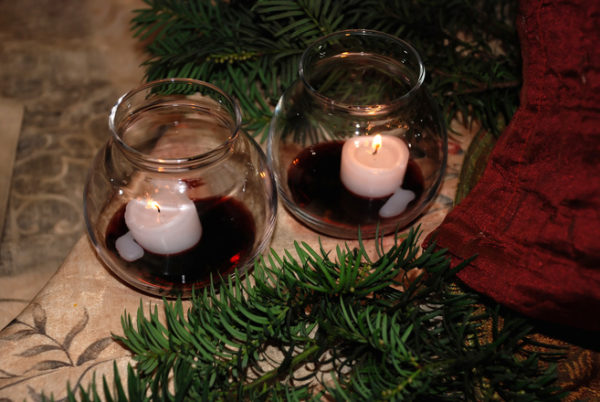When do you take your Christmas tree down?
When I was a young boy growing up in London we always left our tree up until the start of February. Most of our neighbours got rid of their trees on, or around, New Year’s Day. Some even started taking down their decorations on Boxing Day, whereas our mother would still be brushing up needles off the floor when they were buying up their first Easter eggs.
As far as our family was concerned, Christmas started on 24 December when the family gathered for Wigilia, and lasted until Candlemas, 40 days later.

Technically speaking, that’s the right way to do it. Christmas ends in a liturgical sense on 6 January – when the Church celebrates the day that the Star of Bethlehem led the Three Kings to the crib and the Baptism of Christ. But as a time of celebration, it doesn’t end until 2 February. This means that the Church celebrates the Child Jesus for a full 40 days, just like She remembers Christ being in the desert for 40 days during Lent, and commemorates Easter for 40 days, until the feast of the Ascension.
Here in the UK though, most people have got it the wrong way round. As soon as the first Christmas pop songs start blaring out in the shops, everyone starts indulging like we’re about to undergo a major famine. And just how many Christmas parties does the average person have these days before they open the presents under the tree? There’s the official Christmas office party, then there’s one for old school friends, your close-knit group of friends, the people from your sports club/hobby group… the list just goes on.
As far as the vast majority of the population is concerned, the season to be jolly starts on 1st December and ends with the last mince pie on 25th December.
So when it comes to Boxing Day, it’s no wonder that so many people are ready to start some ridiculous alcohol-free vegan detox programme.
This has all happened because Advent has been sacrificed on the dual altar of consumerism and secularism. And paradoxically, it has resulted in the true Christmas season being completely eclipsed by a dark brooding period called the January Blues. And what does this time consist of? Frustration at already broken New Year resolutions, maxed out credit card bills, guilt about overindulgence, a general sense of emptiness. In short, a recipe for depression.
So not only is the inversion of Christmas wrong, it’s actually bad for us too.
Health experts have a more technical name for the January Blues. They call it seasonal affective disorder (SAD). Apparently it affects around 2 million people in the UK.
SAD experts have suggested a number of remedies to the condition including staying warm; eating healthily; getting plenty of light; singing; and seeing your friends and family. Now I don’t know about you, but all of that sounds a lot like Christmas to me.
Now imagine what life would be like if everyone celebrated Christmas in January.
Every high street and house would be lit up with decorations, giving off plenty of therapeutic light and Christmas spirit.
You’d have a larger window (26th December – 2nd February) during which to organise your Christmas meals with your various social groups. So it would be easier to get a table. You’d also probably be able to get all sorts of good deals from restaurants that would be desperate to get customers through their doors after a quiet Advent.
You would also have plenty of time to see your extended family, rather than making the excuse that you can’t possibly fit everyone in between Christmas and New Year’s Day. You could all get cosy in front of the Christmas tree with a large glass of mulled wine, sing carols together and reminisce. Before you know it, you’ll be smiling from ear to ear with all those good oxytocin hormones flowing through your being.
There will also be plenty of opportunities to eat well. What, after all, is healthier than a steaming bowl of bigos? Or a large serving of leftover turkey stuffed pierogi, packed full of enough protein to propel Mariusz Pudzianowski back onto the World’s Strongest Man’s winning podium?
But wouldn’t everyone feel just as deflated once it was over in February as they would do in January, I hear you ask?
I’m not sure that they would. The celebrations would have gone on for so long that people would probably welcome a few days of quiet contemplation. The nights start getting shorter too and Lent is just round the corner, which is the doorway to another time of celebration and the first signs of Spring.
I’m convinced it’s the way forward. Anyone want to join me in giving it a try?
Marek Handzel









![Czy to możliwe? Laxton Hall po raz szesnasty! [ZDJĘCIA]](https://www.tydzien.co.uk/wp-content/themes/LondonLive/thumb.php?src=/media/2024/06/Głowne-zdjęcie-do-artykułu-nr-3-600x400.jpg&w=95&h=74&zc=1&q=100)




